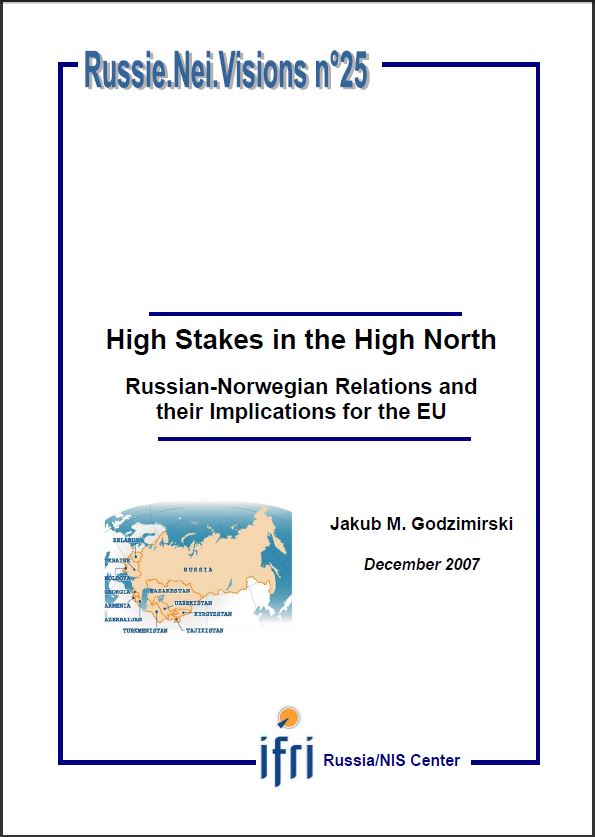High Stakes in the High North: Russian-Norwegian Relations and their Implications for the EU

After the collapse of the Soviet Union, Norway embarked on a policy to overcome old dividing lines in the High North and encourage closer cooperation with Russia, its large neighbor to the east. In addition to being neighbors in the High North - an area that still plays an important part in Russian strategic designs - both countries are important global energy players and share interests in developing energy resources in the area. However, their energy cooperation is influenced by many historical and geopolitical factors and concerns, and their bilateral relationship is strongly influenced by a visible disparity of their respective potentials and by their historically determined perceptions of each other. To what extent their cooperation in the energy sphere will be influenced by these perceptions, and to what extent their energy related interests overlap or collide are a few of the questions addressed in this brief analysis of the developing Russian-Norwegian energy relationship, particularly in light of Gazprom's decision to invite StatoilHydro to join the Shtokman gas field project.
Download the full analysis
This page contains only a summary of our work. If you would like to have access to all the information from our research on the subject, you can download the full version in PDF format.
High Stakes in the High North: Russian-Norwegian Relations and their Implications for the EU
Related centers and programs
Discover our other research centers and programsFind out more
Discover all our analysesRussia's Asia Strategy: Bolstering the Eagle's Eastern Wing
Among Russia’s strategic priorities, Asia traditionally played a secondary role compared to the West. In the mid-1990s, then Foreign Minister Yevgeny Primakov initiated a rapprochement with China and India. Then, in 2014, deteriorating relations between Russia and the West prompted Moscow to begin its “great pivot to the East”.
Kazakhstan After the Double Shock of 2022: Political, Economic and Military Consequences
The year 2022 represented a dual shock for Kazakhstan. In January, the country faced its most severe political crisis since independence, followed in February by Russia’s full-scale invasion of Ukraine, which cast uncertainty over the borders of post-Soviet states. These consecutive crises profoundly shaped Kazakhstan’s domestic and foreign policy.

How the Russian Army Changed its Concept of War, 1993-2022
The traditional and high-intensity war that has occurred in Ukraine since Russia decided to invade raises a key issue: did post-soviet Russian strategic thought really prepare Russia for waging this war?
Russia's Nuclear Deterrence Put to the Test by the War in Ukraine
From the outset of its “special military operation” (SVO) against Ukraine on February 24, 2022, Russia, which possesses one of the world’s largest nuclear arsenals, has adopted aggressive deterrence measures and a resolutely menacing rhetorical stance.











